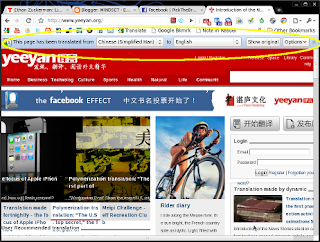Of Memory Templates And Free Will
Deepak Ranade
Thinking seems to be a constant involuntary drone in our waking state. Thinking often is also the root of many psychosomatic ailments. The process of thinking is essentially quasi-voluntary and spiritual seekers aim to reach a state of thoughtlessness.
There is no specific centre in the brain that has been identified as the originator of thoughts. It would be absurd to conclude that thoughts arise empirically and randomly Logically there has to be some cause-effect basis of thoughts arising.
Perception of the outer world lays the substrate for thoughts, responses and actions. Hence perception and thought initiation must have some source code which is unique for every individual.Since computers closely mimic neural networks, we could analyse their functioning to shed some light on the working of the human brain.
The computer's Read Only Memory or ROM is a preset programme which cannot be modified. ROM has the blueprint of basic operations as well as anagrams for processing data. It operates and controls vital processes.The computer also has a Random Access Memory or RAM, which is a storage device for data that can be erased and modified.
Every human being also comes with an inbuilt ROM programme. This is the database of all past karmas and vasanas. Vasana is unmanifest thought; it is the substrate of thought. It pre-empts all thoughts and actions. Thoughts are constructed on the infrastructure of vasana. This data is not deletable. Every individual is born with a unique ROM that contributes not only to thought initiation, perception but also to programme the responses of the individual. This explains why each individual reacts differently to the same external stimulus. The varying reactions are therefore also a function of the operative system. Every individual is also provided with a RAM, which records all events as they take place. It serves as input for subsequent encryption into ROM. ROM is then subsequently formatted onto the hard disc of the individual in successive births.
Vasanas precede thought and thought precedes action. Action thereafter generates- further vasanas and this cause and effect cycle generates karma. So we are now dealing with an operating system that has an inbuilt programme, an encryption of all previous karmas and vasanas.
However, we also have free will to ignore this inbuilt programme. We could script a new programme which subsequently gets transferred to the ROM. Free will represents the ability of each one to rebel against the inbuilt programme. Science could determine the past as it may have the ability to access the ROM, but no science can predict what is going to get written in the RAM.
Mind is the effecter of ROM. It generates all thoughts as a function of the unique source code of ROM. Unbridled execution of ROM results in impulsive actions. But volitional control can help us overcome the diktat of ROM. With •intense determination and control, it can be forbidden to enforce the encrypted script. If efforts are not taken to counter this preformed template, life travels along the uncontrolled path determined by the sum total of the past. To script a new ROM is the aim of all sadhana, discipline and meditation. Life vacillates between surrendering to the programme and endeavour to exercise the free will.
The power to recondition responses which otherwise would be just a meek submission to ROM resides in every individual. So does the free will to use this power.
The writer is a neurosurgeon.E-mail: deepakranade@hotmail.com.

Comments
Post a Comment